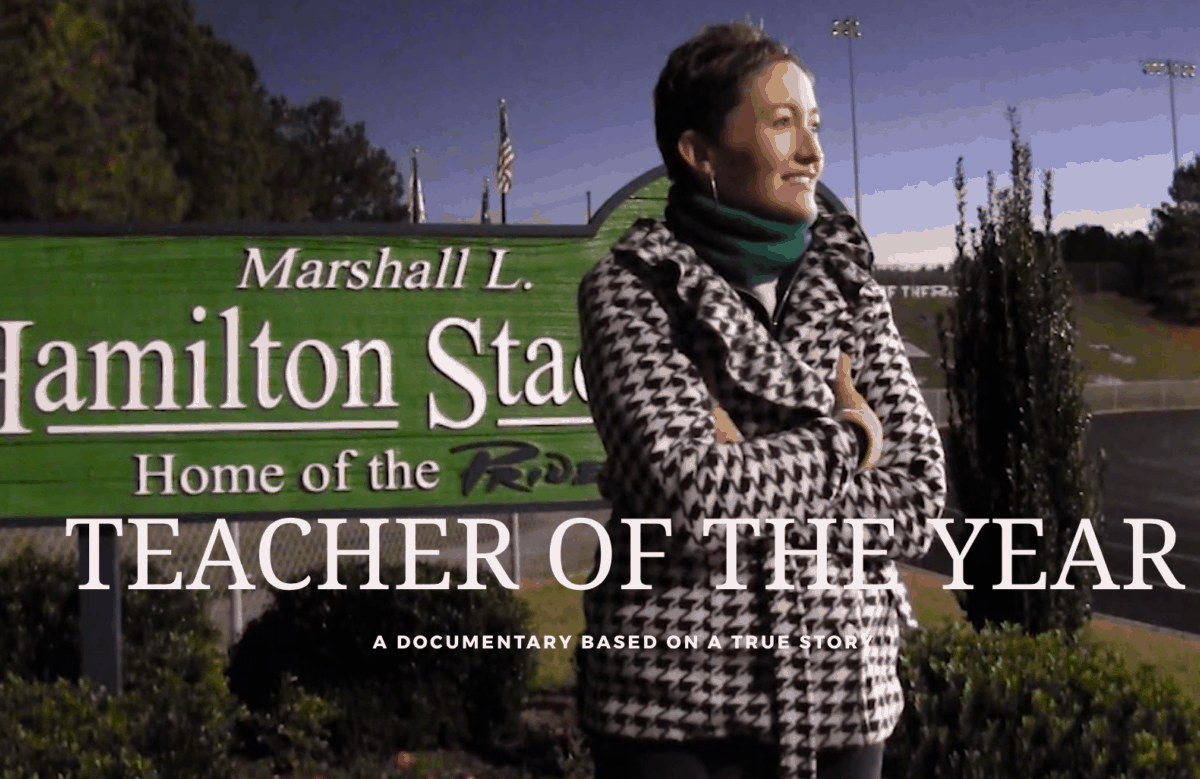
The halls of government are controlled, both executive and legislative, by the same party, and laws are being passed quickly, undermining our core values, but I’m not writing about our current national politics. It was the summer of 2013.
But let’s roll things back just a little.
During the 2012-13 school year, my filmmaking partner, Jay Korreck, and I were working at Leesville Road High School. He was a lateral entry CTE teacher, and I was a newly minted mentor aptly assigned to him by a knowing administrator. This admin saw that Jay and I both were passionate about film. Jay has an MFA in digital filmmaking, and I have an MA in English and film studies, so it didn’t take long for our conversations about pedagogy and practice to shift to film and art and dream projects.
Our conversations often took place after work, where after a beer we found ourselves wondering why teachers are seen and treated in ways that quite often do not match up with the reality of teaching. Why legislation seeks to remove the bad teachers and reward only the good ones. As teachers with a passion for film and media studies, we undertook the journey of discovering why teachers are seen in such reductive ways.
Jay and I began following a variation of the following essential question — what happens when a real teacher tries to be a Hollywood hero? — and we turned it into a film project. In my reading, I discovered the scholarship of Robert Bulman, Mary Dalton, Laura Linder, and Jim Trier. All scholars and writers that affirmed one element in common — that teachers are presented in reductive ways on television and by Hollywood movies. In Dalton’s The Hollywood Curriculum, her second chapter explores the following question in detail, “The Hollywood Model: Who Is the Good Teacher?” In the third chapter of his book, Hollywood Goes to High School, Bulman lays bare the myth of “The Outsider as the Teacher-Hero.” Jay and I imagined a project where we might reveal these myths about teaching, which the scholars expose in their work, but we felt that we needed to add in the voices of real teachers.
This is where Angie Scioli enters the scene.
In the spring and summer of 2013, Jay and I first filmed and interviewed Angie, and we found ourselves immediately drawn to her. Her passion and willingness to reflect on teaching makes her an ideal subject, and as first time filmmakers, we were very lucky to find a subject who so willingly unburdened herself to us, but she also unwittingly endeared herself to us in another way. When we filmed her leading a staff development about flipping her classroom during an early release day, she made the following claim that nearly caused me to fall out of the desk.
“We all know that this profession to some degree is acting, is a great performance.”
This conceit, which Angie related in an effort to make her case about why flipping the classroom is important work, fit perfectly with how the scholars were reading the impact of Hollywood on the teaching profession. Jay and I agreed — we would ask Angie to be our subject and, if Angie agreed, we would allow her to help us show what real teachers do and how real teaching is antithetical to the Hollywood depictions. The through line seemed clear and direct. Then the N.C. General Assembly began the systematic dismantling of public education in our state, and our subject did something we did not anticipate. Something she did not anticipate.
Angie became a protester and founded Red4Ed NC.
Angie’s decision to help lead the march back in July 2013 became an essential part of the story of the 2013-14 school year. The wheels were up on our production, and the clear line that we initially planned for our story took the first of many turns that Jay and I could not have imagined. I won’t reveal all of those twists and turns here because I hope you’ll want to watch the film for yourself or learn more about our film and about us at teacheroftheyearfilm.com.
Education reform is likely to take some unusual turns in the near future, and at the national level, the rest of the country is about to discover some of what we’ve learned the past few years in our state. When one party controls all levels and branches of government, the discourse and policy bends in one direction.
Though our film is not meant to be explicitly political, we have a subject who picked a side and fought hard for it with varying degrees of success. The battle Angie fought and continues to fight is informed by her unflinching devotion to teaching; it is a passion fueled by her faith, her family values, her progressive ideals, and by her exposure to a complex media landscape.
Jay and I recognize that our portrait of Angie’s idealistic pursuit of excellence during the 2013-14 school year may actually raise more questions than it answers, but as educators we’ve come to embrace that possibility. Perhaps, now more than ever, nuanced, informed conversations about teachers, teaching, and media are exactly what we need.
